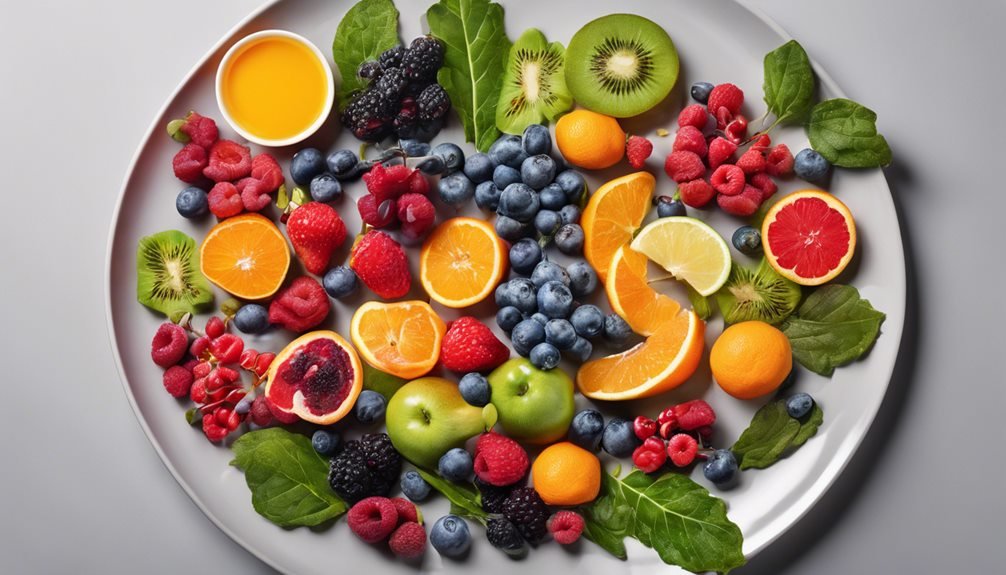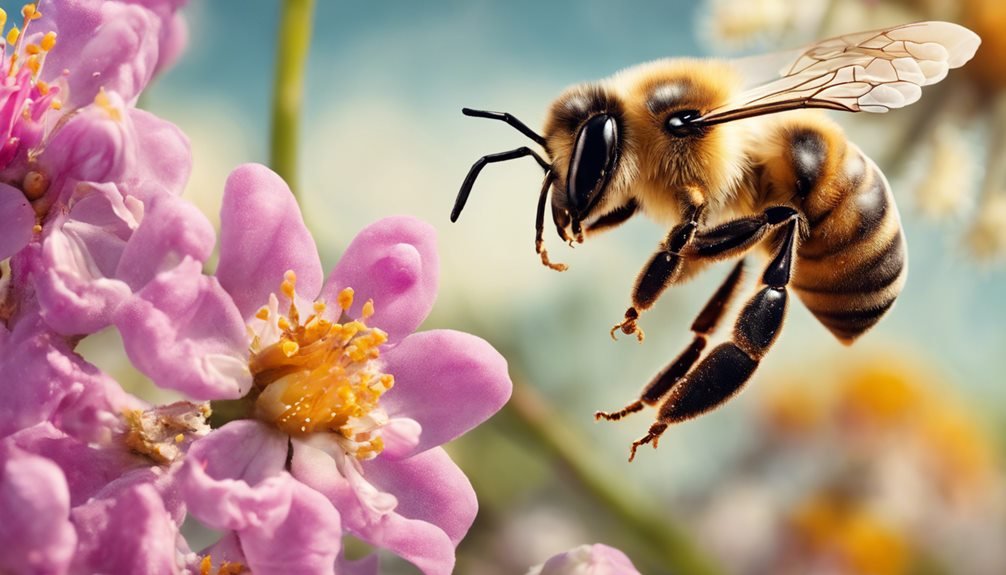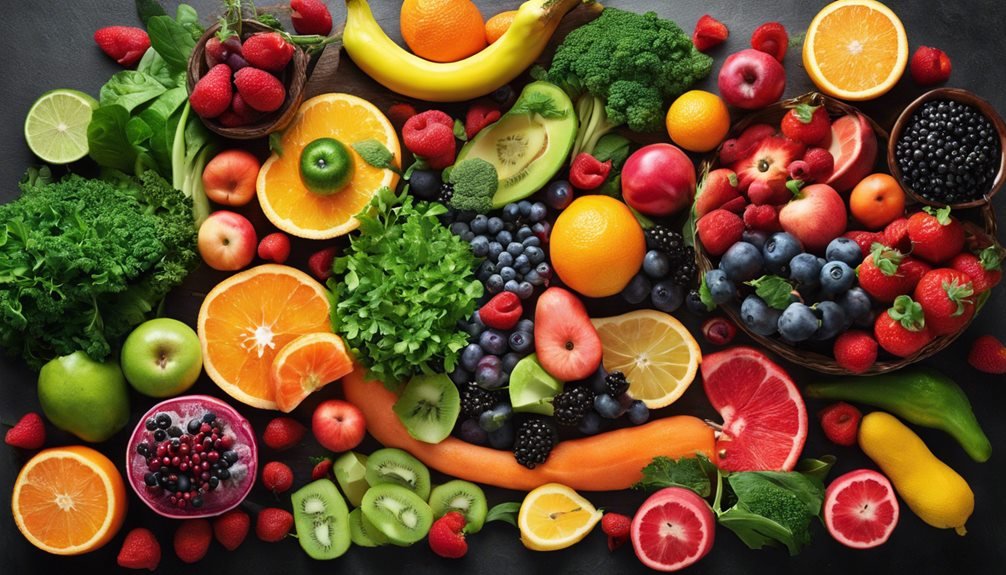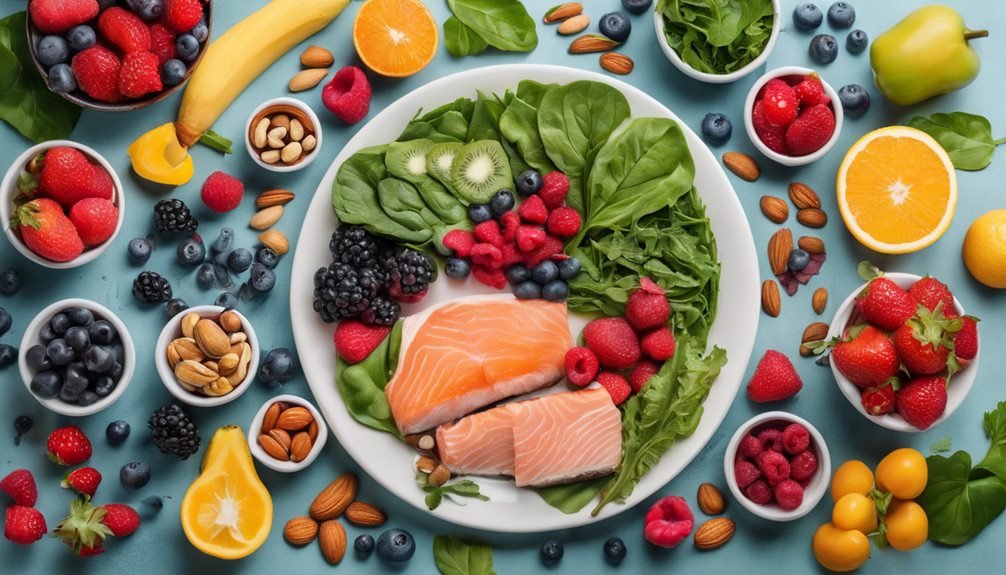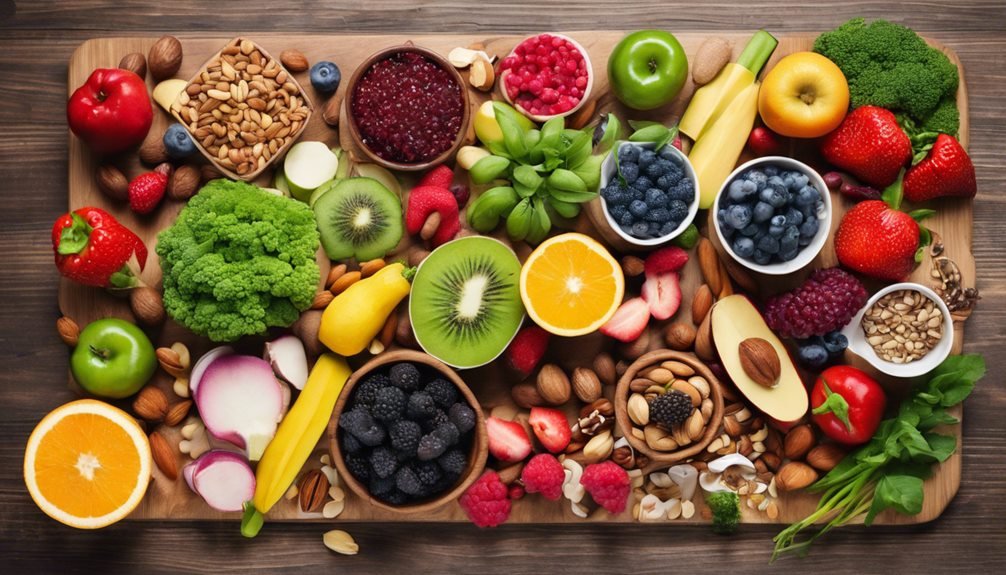When facing the challenges of cancer treatment, considering an antioxidant-rich diet can be a beneficial addition to your wellness plan. These powerful nutrients can offer support in various ways, but have you ever wondered about the specific foods that pack the most antioxidant punch? Exploring the connection between antioxidants and cancer management can shed light on how your dietary choices can positively impact your health journey.
Key Takeaways
- Include berries, nuts, and antioxidant-rich foods for protection against oxidative stress.
- Opt for organic produce to maximize antioxidants and reduce exposure to pesticides.
- Consult healthcare providers for personalized supplements like vitamins C, E, and selenium.
- Hydrate with antioxidant-rich beverages like green tea and detox water for detoxification.
- Plan colorful, nutrient-dense meals with whole grains, fruits, vegetables, and proteins for optimal well-being.
Importance of Antioxidants
Antioxidants play a crucial role in your diet, especially during cancer treatment. These powerful compounds provide cellular protection by neutralizing harmful molecules called free radicals. During cancer therapy, your body's cells can be exposed to increased oxidative stress, making antioxidants essential for maintaining cell health and integrity.
By incorporating antioxidant-rich foods into your meals, you're actively supporting your immune system. Antioxidants help bolster your body's natural defense mechanisms, aiding in the fight against illness and infection. Vitamins C and E, beta-carotene, and selenium are examples of antioxidants that can promote immune support when consumed through a balanced diet.
Free Radicals and Cancer
Exposure to free radicals is a common occurrence in our bodies, especially during cancer treatment. Free radicals are unstable molecules that can cause oxidative stress, leading to cellular damage. In the context of cancer, this damage can hinder the body's ability to repair itself and may contribute to the progression of the disease. Prevention of excessive free radical formation is crucial in supporting the body's natural repair mechanisms.
During cancer treatment, the body is often under increased oxidative stress due to factors like chemotherapy or radiation therapy. These treatments can generate high levels of free radicals, overwhelming the body's antioxidant defenses.
Antioxidant-Rich Foods List
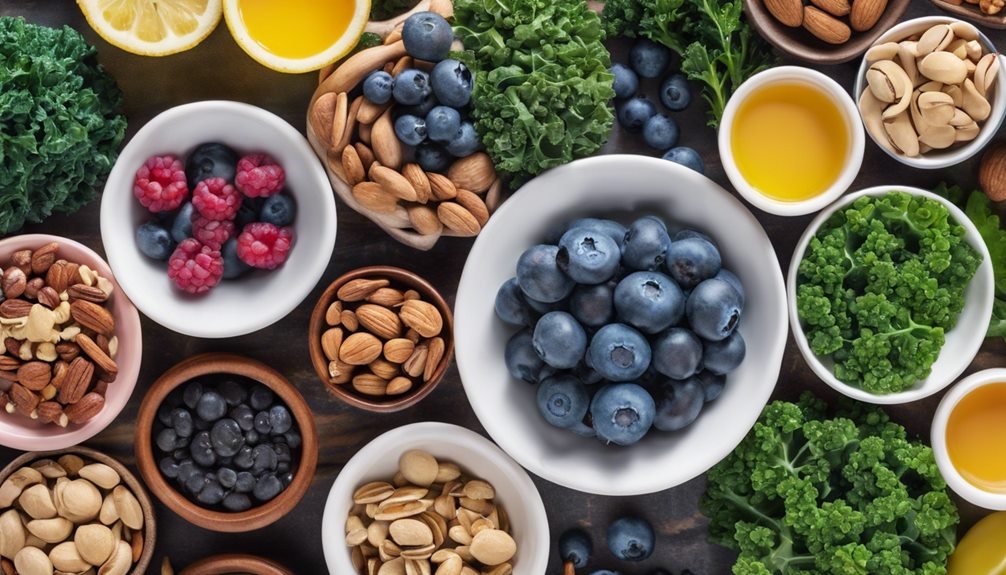
Given the impact of free radicals on your body during cancer treatment, focusing on incorporating antioxidant-rich foods into your diet can play a significant role in supporting your overall health and well-being. Antioxidant-rich foods help combat oxidative stress and inflammation, which are common during cancer treatment.
Include fruits like berries, oranges, and apples; vegetables such as spinach, kale, and broccoli; nuts like almonds and walnuts; and sources of healthy fats like avocados and olive oil. When possible, opt for organic produce to reduce exposure to pesticides and maximize antioxidant content.
Additionally, consider incorporating antioxidant supplements like vitamin C, vitamin E, and selenium to further support your body's defenses. Remember that cooking methods can impact the antioxidant levels in your food; opt for steaming, roasting, or raw consumption to preserve the antioxidants.
Role of Vitamins and Minerals
During cancer treatment, the role of vitamins and minerals in supporting your overall health becomes paramount. It's essential to ensure you're getting an adequate intake of these micronutrients to help your body cope with the challenges of cancer therapy. While a balanced diet should be your primary source of vitamins and minerals, sometimes supplements may be necessary to meet your body's increased demands. Your healthcare provider may recommend specific supplements based on your individual needs.
However, it's crucial to be mindful of any dietary restrictions that may come with your treatment plan. Some cancer therapies may require you to avoid certain foods or limit your intake of particular nutrients. It's essential to work closely with your healthcare team and a registered dietitian to create a well-rounded diet that meets your nutritional requirements while adhering to any restrictions.
Incorporating Berries and Nuts
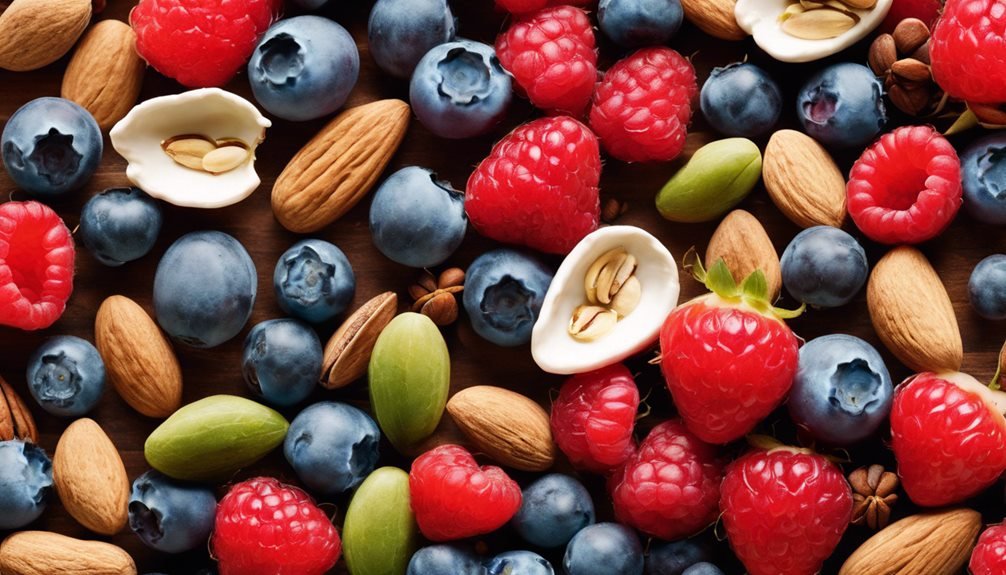
When it comes to supporting your health during cancer treatment, incorporating antioxidant-rich foods like berries and nuts can provide valuable benefits. Berries such as strawberries, blueberries, and raspberries are packed with powerful antioxidants like vitamin C and flavonoids, which can help reduce inflammation and oxidative stress in your body. Nuts like almonds, walnuts, and pecans are rich in vitamin E, selenium, and omega-3 fatty acids, all of which have been shown to have anti-cancer properties.
Here are some delicious ways to incorporate berries and nuts into your diet:
| Berries | Nuts | Recipes |
|---|---|---|
| Strawberries | Almonds | Strawberry Banana Smoothie |
| Blueberries | Walnuts | Blueberry Almond Snack Mix |
| Raspberries | Pecans | Raspberry Walnut Energy Balls |
These ingredients can be blended into nutrient-packed smoothies or combined for satisfying snack options. By including these antioxidant-rich foods in your diet, you can nourish your body and support your overall well-being during cancer treatment.
Green Leafy Vegetables Benefits
To reap numerous health benefits during cancer treatment, incorporating green leafy vegetables into your diet is a smart choice. Spinach is packed with essential nutrients like vitamins A, C, and K, as well as iron and calcium, which can help boost your immune system and support overall health.
Kale, another powerhouse vegetable, is rich in antioxidants and fiber, promoting digestive health and reducing inflammation.
Broccoli, known for its cancer-fighting properties, is a great source of vitamin C and folate, vital for cell repair and growth.
Swiss chard, with its high levels of vitamins A and K, can aid in bone strength and vision health.
Including these green leafy vegetables in your meals not only adds variety but also provides your body with the necessary nutrients to help you feel stronger and more energized during your cancer journey. Make sure to enjoy a colorful plate filled with these nutrient-dense options to support your well-being.
Whole Grains and Legumes
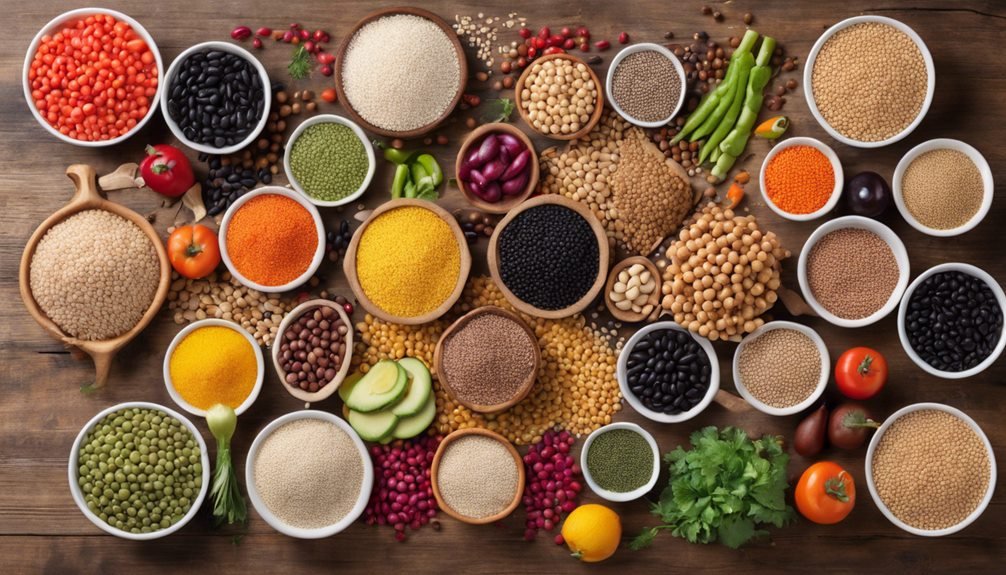
Embrace the health benefits of incorporating whole grains and legumes into your diet, as they play a crucial role in supporting your well-being during cancer treatment.
Whole grains like brown rice, quinoa, and oats are rich in fiber, which aids in digestion and helps maintain a healthy weight.
Legumes such as beans, lentils, and chickpeas are excellent protein sources that can assist in rebuilding tissues and supporting your immune system.
Fiber benefits found in whole grains and legumes can help alleviate digestive issues common during cancer treatment, such as constipation. Additionally, the protein sources in legumes are vital for repairing and maintaining muscle mass that may be impacted by cancer therapies.
Herbs and Spices Boost
As you navigate your journey through cancer treatment, consider the flavorful addition of herbs and spices to your meals as a means to boost both taste and health benefits. Herbs and spices not only enhance the flavor of your dishes but also provide essential antioxidants that can support your overall well-being during this time. Experimenting with different herbs and spices can make your meals more enjoyable and nutritious.
Here is a table showcasing some common herbs and spices along with their potential health benefits and recommended cooking methods:
| Herb/Spice | Health Benefits | Cooking Methods |
|---|---|---|
| Turmeric | Anti-inflammatory properties, antioxidant-rich | Curries, soups |
| Rosemary | May aid digestion, rich in antioxidants | Roasting, marinades |
| Cinnamon | Helps regulate blood sugar levels | Baking, oatmeal |
Healthy Fats for Balance
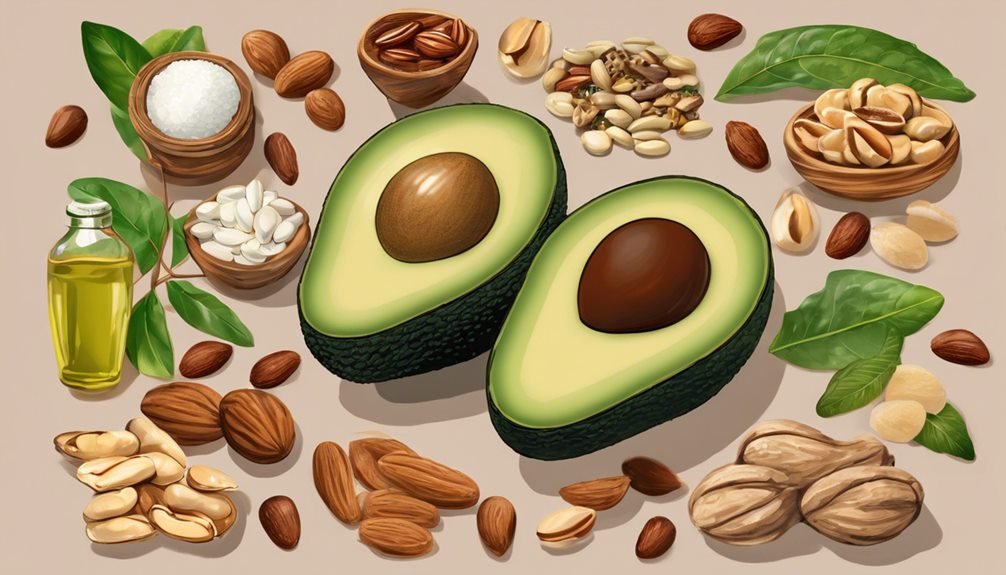
For achieving a well-rounded and nourishing diet during your cancer journey, incorporating healthy fats is essential to maintain balance and support your overall health. Omega-3 sources, like fatty fish (salmon, mackerel, sardines), chia seeds, and walnuts, are excellent for reducing inflammation and supporting heart health. Avocado, a versatile fruit, is another superstar when it comes to healthy fats.
Packed with monounsaturated fats, avocados can help with nutrient absorption and provide a creamy texture to your dishes. They also contain fiber, potassium, and antioxidants that contribute to overall well-being.
When going through cancer treatment, it's crucial to nourish your body with the right nutrients. Healthy fats play a significant role in your diet by providing energy and aiding in the absorption of fat-soluble vitamins like A, D, E, and K. Including a variety of omega-3 sources and avocados in your meals can help you maintain a balanced and nutritious diet that supports your health during this challenging time.
Hydration for Detoxification
Hydrating your body adequately is crucial for supporting the natural detoxification processes that help eliminate toxins and waste products. Staying hydrated is essential for your overall health, especially during cancer treatment. Here are some tips to help you stay hydrated and support your body's detoxification efforts:
- Detox Water Recipes: Infuse water with fruits like lemon, cucumber, or berries to add flavor and antioxidants that can aid in detoxification.
- Maintain Electrolyte Balance: Drink electrolyte-rich beverages like coconut water or homemade sports drinks to replenish electrolytes lost during treatment or physical activity.
- Herbal Infusions: Enjoy herbal teas like ginger, dandelion, or green tea to support liver function and promote hydration while providing additional antioxidants.
Antioxidant-Rich Beverages
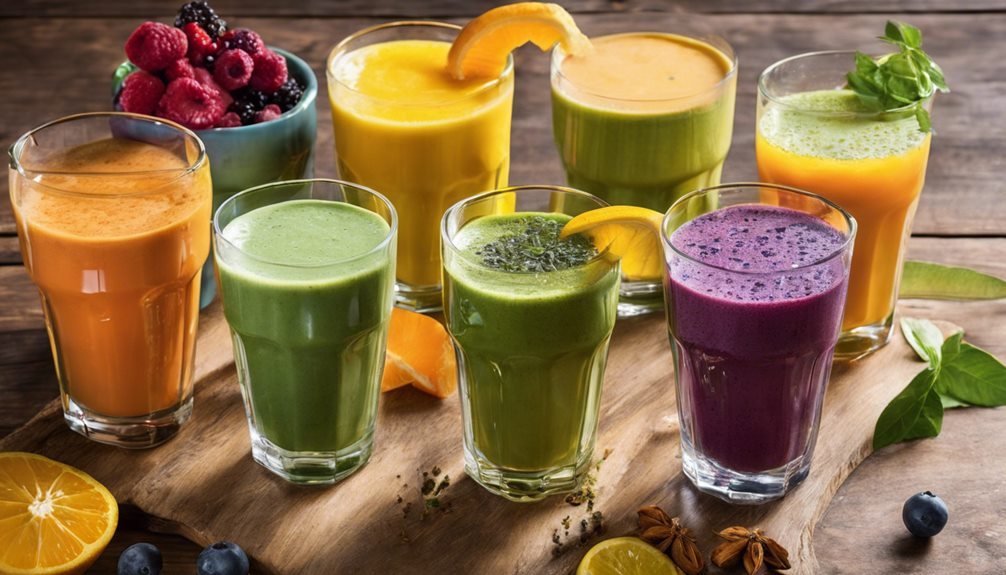
Supporting your body's detoxification process through hydration opens the door to a broader spectrum of health benefits, especially for cancer patients. Antioxidant-rich beverages can be a delicious way to boost your body's defenses. Smoothies are a fantastic option, packed with nutrients from fruits like berries, leafy greens, and nuts.
Try blending blueberries, spinach, almond milk, and a touch of honey for a tasty antioxidant powerhouse. Tea variations also offer a comforting and antioxidant-rich drink choice. Green tea, for example, is known for its high levels of catechins, a type of antioxidant that may help protect cells from damage.
Matcha tea, made from powdered green tea leaves, is another excellent option. Its concentrated form provides even more antioxidants than traditional green tea. By incorporating these antioxidant-rich beverages into your diet, you can support your body's natural defense mechanisms and promote overall well-being during your cancer journey.
Meal Planning Tips
To optimize your nutrition and support your body through cancer treatment, thoughtful meal planning is key. Here are some practical meal planning tips to help you nourish your body during this challenging time:
- Recipe Inspiration: Explore a variety of cancer-fighting recipes from reputable sources like the American Institute for Cancer Research or the American Cancer Society. Experiment with colorful fruits, vegetables, whole grains, and lean proteins to create delicious and nutritious meals.
- Nutritional Counseling: Consider seeking guidance from a registered dietitian specializing in oncology. They can provide personalized recommendations tailored to your specific dietary needs and treatment side effects, ensuring you receive the necessary nutrients to support your health and well-being.
- Meal Prep: Dedicate some time each week to meal prep. Prepare healthy snacks and meals in advance, making it easier to stick to your dietary goals even on busy days. Additionally, consider involving family or friends in meal preparation to make it a shared and enjoyable experience.
Frequently Asked Questions
Can Cancer Patients Consume Antioxidant Supplements?
You should stick to natural sources of antioxidants like fruits and veggies instead of supplements. Taking supplements may pose potential risks, especially for cancer patients. The focus should be on a balanced diet that includes a variety of colorful foods rich in antioxidants.
Always consult with your healthcare provider before adding any supplements to your diet to ensure they won't interfere with your treatment or health. Your well-being is the top priority.
Are There Specific Antioxidants to Avoid During Treatment?
When navigating antioxidant interactions during cancer treatment, it's crucial to be cautious. Some antioxidants, like high doses of vitamin E or beta-carotene, may interfere with certain treatments. Prioritize natural antioxidant sources like fruits, vegetables, and nuts.
Consult your healthcare team to ensure the antioxidants you consume support your treatment plan. By avoiding specific antioxidants and focusing on a balanced diet, you can optimize your health and well-being during cancer treatment.
How Can Cooking Methods Affect Antioxidant Levels in Food?
When you cook food, the method used can impact antioxidant levels. High heat and prolonged cooking times can lead to a loss of antioxidants in fruits and vegetables. Antioxidant absorption and bioavailability are key factors affected by cooking methods.
Steaming or microwaving foods lightly can help retain more antioxidants compared to boiling or frying. Being mindful of how you cook can help maximize the nutritional benefits you receive from antioxidant-rich foods.
Is There a Recommended Daily Intake of Antioxidants for Cancer Patients?
For cancer patients, the recommended daily intake of antioxidants varies. Antioxidant sources like berries, nuts, and leafy greens can provide benefits by reducing oxidative stress. Incorporating these into your diet may support overall health.
Consult with a healthcare provider or a registered dietitian to determine the right amount of antioxidants for your specific needs. Remember, balance is key when incorporating antioxidant-rich foods into your daily meals.
Can a High Intake of Antioxidants Interfere With Chemotherapy or Radiation Therapy?
Having a high intake of antioxidants can potentially interfere with the effectiveness of chemotherapy or radiation therapy. Timing is crucial; it's advised to avoid taking antioxidant supplements during treatment to prevent any negative interactions. Instead, focus on obtaining antioxidants from natural food sources like fruits, vegetables, nuts, and seeds.
Consult your healthcare team for personalized recommendations to ensure you're supporting your body's healing process without compromising your cancer treatment.
Conclusion
As you continue to prioritize antioxidant-rich foods in your diet, remember this: studies show that cancer patients who consume a variety of these nutrient-dense foods have a 15% reduced risk of cancer recurrence. Your commitment to nourishing your body with antioxidants can make a significant impact on your health and well-being during treatment. Keep up the good work and stay strong on your journey to recovery.
